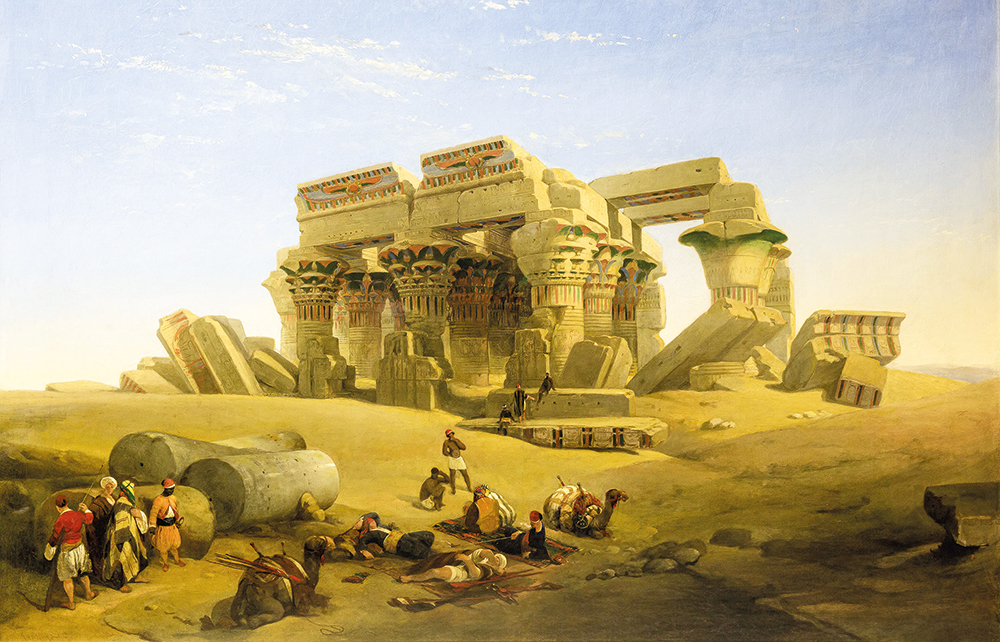‘Poor old Mornington Crescent, I feel sorry for it with this highly made-up neighbour blocking the view it had enjoyed,’ commiserated Professor C.H. Reilly in the Architects’ Journal in 1928. He was talking about the new reinforced-concrete Carreras cigarette factory designed by architects Marcus Evelyn and Owen Hyman Collins that had just gone up across from the station. It wasn’t the concrete that bothered him so much as the make-up: the gaudily painted façade with papyrus-form columns copied from the ancient Egyptian tomb of Panehsy and the two huge black cats representing the goddess Bast – while advertising Black Cat cigarettes – flanking the entrance.
How did this time-travelling lump of Egyptiana come to land in north London? It’s a long and very complicated story told in two fascinating exhibitions marking the anniversaries of the two great eureka moments in Egyptology – the decoding of hieroglyphs in 1822 and the rediscovery of Tutankhamun’s tomb a century later – both involving imperial conquest, bitter scholastic rivalries and appropriation on a humungous scale.
The story of the race to decipher hieroglyphic script is a page-turner thrillingly told in this show
It was the Romans who began emptying Egypt of its pharaonic patrimony: to mark his conquest in 30 BC Octavian had a pair of obelisks carted off from Heliopolis and set up in Rome. When Renaissance archaeologists began digging into Rome’s classical past, up came imperial loot from ancient Egypt inscribed with mysterious symbols that some humanists fancied held the key to lost priestly wisdom. But how to unlock it? Enter another conqueror, Napoleon. In 1799 French sappers rebuilding an old fort in Rashid dug up a Ptolemaic decree of 196 BC inscribed in three languages: hieroglyphic, demotic and Greek. In the Rosetta Stone they had found a philological phrasebook.
The story of the race between the French philologist Jean-François Champollion and the English polymath Thomas Young to decipher hieroglyphic script is a page-turner thrillingly told in the British Museum’s Hieroglyphs exhibition.







Comments
Join the debate for just £1 a month
Be part of the conversation with other Spectator readers by getting your first three months for £3.
UNLOCK ACCESS Just £1 a monthAlready a subscriber? Log in